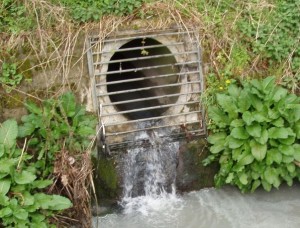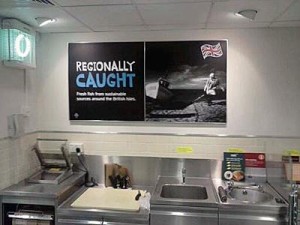A broad-based coalition has been launched today with a website at www.accesscymru.org to campaign for locally-managed access to the Welsh countryside and rivers to ensure that it is sustainable and does not impact on legitimate and economically-important activities such as farming and angling.
The coalition is responding to an on-going consultation on access to the countryside by the Welsh Government, led by the Minister for Culture and Sport, John Griffiths AM, who refused to rule out the possibility of opening up access to all land and water without restrictions at a recent meeting with coalition members, which has incensed a wide range of people who make a living in the countryside. A series of consultation events have been held with stakeholders at which landowners and angling bodies have expressed their concern about the impact on wildlife, livestock and property rights from the proposals. The coalition wants to see sensitive wildlife and fish spawning sites protected, members of the public kept safe from livestock, and to avoid conflict with legitimate users. They are very concerned about the potential legal liabilities and insurance costs that would be heaped onto rural businesses as a result of unfettered access to the countryside being imposed across the whole of Wales. Many livestock farmers, already under great economic pressure, have said that this would have a very damaging effect on the way that they farm, with concerns over dog controls and damage to crops.
There are great fears that members of the public might be injured or killed by farm animals when straying off managed paths. Angling clubs are extremely worried by proposals for universal access to water as they are already suffering the impacts of widespread illegal canoeing. Angling clubs and landowners have had great difficulties finalising voluntary access agreements because Canoe Wales has refused to allow its regional representatives to agree to any restrictions, insisting instead on access at all times and water heights. A green paper consultation is expected before Christmas and the leaders of the organisations are holding a series of meetings with Assembly Members, Ministers and officials to make their views clear.
The coalition of rural organisations has launched a call for funds to support the campaign, including the cost of legal advice on potential challenges to legislation. Details of where you can send your donations can be found at www.accesscymru.org where you can also sign up in support of the campaign.
Rachel Evans, Director of the Countryside Alliance in Wales said: “Wales has a vast network of footpaths and bridleways and large areas of National Park which are available to walkers, riders and mountain bikers. It is already difficult for farmers and landowners to manage their activities to keep potentially dangerous livestock away from these paths. A free-for-all would create chaos in the countryside.”
Ben Underwood, Director of the Country Land and Business Association in Wales said: “We have put forward a range of proposals to improve access legislation to remove some of the bureaucratic red tape and to reach agreements more rapidly at a local level so that local people and visitors alike can explore the Welsh countryside safely, but without damaging the interests of thousands of rural businesses who make their living from the land, and are major employers. We would strongly resist any blanket proposals that did not take into account local diversity.
Mark Lloyd, Chief Executive of the Angling Trust & Fish Legal said: “On several rivers, such as the Wye, Usk, Dee, Conwy and Teifi, agreements have been drawn up to allow canoes and other boats access at certain times of the year to avoid conflict with anglers and/or spawning fish. These agreements have worked well in many places, but in others they have not progressed because Canoe Wales has resisted agreements which do not allow unfettered access for everyone at all times. The canoeing governing bodies have also created confusion in Wales and the rest of the UK by suggesting that there might be some uncertainty about the law regarding navigation, which there is not.”
Tony Rees, Chairman of Angling Cymru said: “Officials have shown an interest in replicating the right to roam arrangements in Scotland, but this is not a good comparison. There have been significant problems in areas close to major urban centres in Scotland and angling businesses on rivers such as the Tay have lost a huge amount of visiting anglers because of an influx of commercial rafting companies that make fishing impossible. Wales is in easy access of Liverpool, Manchester, the West Midlands conurbation and Bristol; unregulated access to rivers could impact very significantly on tens of thousands of people in Wales who are members of local angling clubs. Angling Cymru has always promoted voluntary access agreements as the preferred way forward and its members are committed to this end.”
George Barron, Chairman of the Welsh Salmon and Trout Angling Association said: "I feel that the new legislation being proposed by John Griffiths AM is basically the 'Nationalisation' of all Welsh waters and land. If unrestricted blanket access goes ahead, all farmers, landowners and most certainly angling clubs, may no longer have control or be able to manage effectively the assets presently under their control. Any new access legislation must be agreed locally by all the User Groups, they must be regulated and endorse similar codes of conduct as expected of the landowners and angling clubs. Given that enforcement by the NRW will be a major concern, particularly on the waterways, all User Groups should also share the cost of improved bailiffing and enforcement on a pro rata basis."
Posted in News
|
Tagged Angling Trust
|


 The public’s ‘right to know’ what gets dumped into our rivers received a welcome boost this week when the Court of Justice of the European Union issued a judgment on important questions of EU law related to public access to environmental information about the activities of the privatised water and sewage companies in the UK.
The public’s ‘right to know’ what gets dumped into our rivers received a welcome boost this week when the Court of Justice of the European Union issued a judgment on important questions of EU law related to public access to environmental information about the activities of the privatised water and sewage companies in the UK.  Anglian Water Services Ltd has been fined after discharging poorly treated sewage effluent into the North Sea on two occasions last year. The incidents took place at the Clacton (Holland Haven) Sewage Treatment Works, Essex. Anglian Water holds an environmental permit from the Environment Agency allowing for the discharge of up to 27,419 cubic metres per day of secondary treated sewage effluent to the North Sea.
Anglian Water Services Ltd has been fined after discharging poorly treated sewage effluent into the North Sea on two occasions last year. The incidents took place at the Clacton (Holland Haven) Sewage Treatment Works, Essex. Anglian Water holds an environmental permit from the Environment Agency allowing for the discharge of up to 27,419 cubic metres per day of secondary treated sewage effluent to the North Sea.  South West Water has been ordered to pay £58,375 in fines and costs for discharging sewage into a tributary of the Tamar estuary. The case was brought by the Environment Agency.
South West Water has been ordered to pay £58,375 in fines and costs for discharging sewage into a tributary of the Tamar estuary. The case was brought by the Environment Agency. 